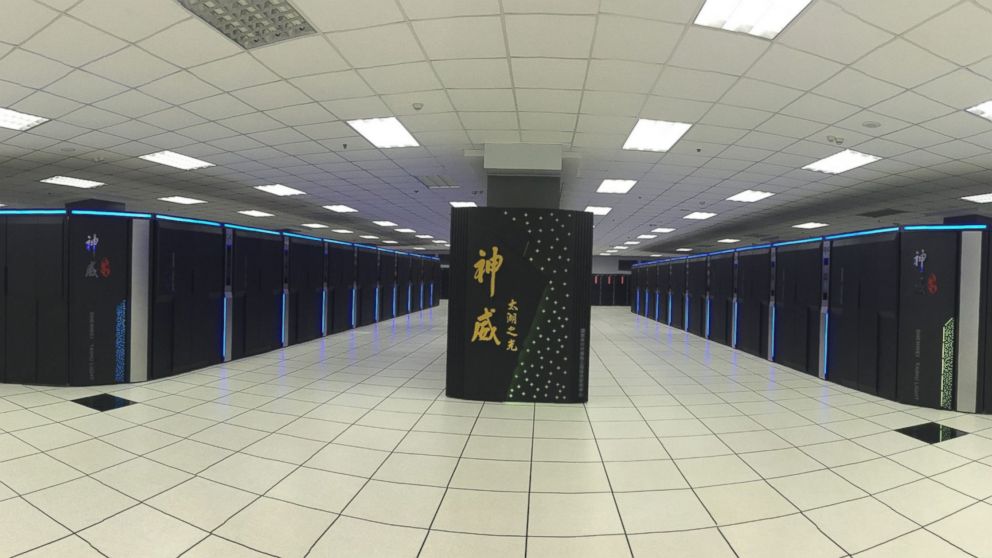China Is Home to the World's Most Powerful Supercomputer
Find out what a 93 petaflop computer can do in a single second.

— -- When it comes to supercomputers, China continues to dominate the rest of the world.
In its bi-annual rankings of the world's most powerful computing machines, Top500 named China's new Sunway TaihuLight as the most powerful computer in the world.
The 93-petaflop machine can perform around 93,000 trillion calculations per second. One petaflop equals around one quadrillion calculations per second. The computer can be used for big data analytics and weather forecasting, among other functions.
The computer unseats the former champion, China's Tianhe-2, which was developed by China's National University of Defense Technology. Tianhe-2 performs at a rate of 33.86 petaflops per second, making the new champion twice as fast and three times more efficient.
The United States slipped to the No. 3 spot with Titan, a computer operating at the Department of Energy's Oak Ridge National Laboratory in Tennessee. Titan has an impressive 17.59 petaflops per second and has the distinction of being one of the most energy-efficient computers on the list, according to Top500.
The latest list, which was announced today at the 2016 International Supercomputing Conference in Frankfurt, Germany, also includes a new first.
For the first time in the list's history, the U.S. is not home to the largest number of supercomputers. That distinction now goes to China, which has 167 systems -- two more than the U.S., according to the makers of the list.
The TOP500 list is compiled by Erich Strohmaier and Horst Simon of Lawrence Berkeley National Laboratory; Jack Dongarra of the University of Tennessee, Knoxville; and Martin Meuer of ISC Group, Germany.




